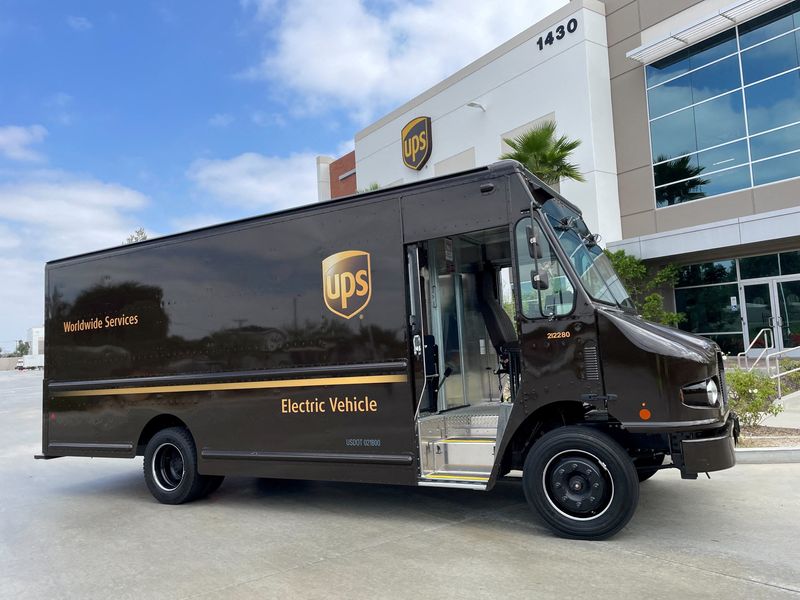By Lisa Baertlein, Ananta Agarwal and Arriana McLymore
(Reuters) - United Parcel Service (NYSE:UPS) lowered its 2024 operating margin target on Tuesday, after new e-commerce customers - identified by industry experts and shoppers as Shein and Temu - flooded its network with slower, lower-profit shipments.
Shares of the world's biggest package delivery firm tumbled 13% in midday trading and pulled shares of rival FedEx (NYSE:FDX) down 2%, after UPS also missed Wall Street's estimates for second-quarter profit.
UPS declined to name the new customers, but its description of them as shippers with "explosive" volume matches the profiles of Shein and PDD Holdings Inc's Temu, which send inexpensive clothing and other goods from Chinese factories direct to U.S. shoppers via the lowest-cost delivery option.
Shein and Temu together send almost 600,000 packages to the United States every day, according to a June 2023 report by the U.S. Congress. That volume already has roiled the air cargo business and appears to be doing the same to the last-mile delivery industry.
During the quarter, volume from the new, unnamed UPS customers "blew up on us. Their demand was much higher than we had anticipated," CEO Carol Tome said in a conference call with analysts.
That drove a shift from premium air services to less expensive ground service and from ground to even more economical SurePost services, where UPS picks up packages and hands about 60% of them off to the U.S. Postal Service for final delivery, she said. FedEx executives previously noted a similar trend among its customers.
Demand for high-margin package delivery has been lackluster since the end of home-bound consumers' early pandemic e-commerce binge in late 2021. UPS, FedEx and other delivery providers have responded by slashing jobs, parking planes and rooting out other expenses to get costs in line with revenue.
E-commerce giant Amazon.com (NASDAQ:AMZN) is already the biggest customers at UPS. The addition of more low-margin, e-commerce business comes as UPS also prepares to replace FedEx as the primary expedited air service provider for the U.S. Postal Service (USPS) in October.
UPS expects the five-year USPS contract to be profitable in its first year. FedEx had said that work hammered profits.
Tome in an interview said UPS remains "laser focused" on adding higher-margin volume including business-to-business and temperature-controlled healthcare shipments.
The Atlanta-based company on Tuesday said adjusted profit was $1.79 per share for the quarter, below analysts' estimates of $1.99, according to LSEG data. It also lowered its full-year adjusted operating margin forecast to 9.4%, from a range of 10.0% to 10.6%.
The company recently slashed about 11,500 jobs to save around $1 billion.

"We have shown that we can drive costs out and we can continue to do that," Tome said.
UPS expects cost pressures to ease in the second half of the year.